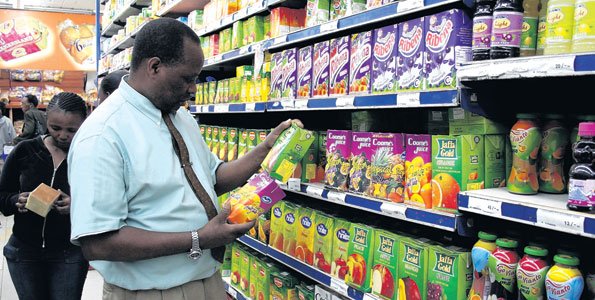Kenyans might have to dig deeper into their pockets to foot their bills for fuel, alcohol and soft drinks including a bottle of water. This is as the Kenya Revenue Authority (KRA) moves to effect inflationary adjustments excisable goods and services beginning October 1.
The KRA is seeking to increase specific rates of excise duty by up to 6.3 per cent which represents the average inflation rate recorded in the last 2021/2022 financial year to cushion the government’s revenues from being eroded by imported inflation.
“The Commissioner-General will adjust for inflation the specific rates of duty set out in the Schedule hereto in accordance with the formula specified in Part 1 of the First Schedule to the Act with effect from October 1, 2022,” KRA said.
If the KRA effects these changes, the price of a bottle of water will rise from Sh. 6.6 per litre to Sh. 7.02. Kenyans who sell juice sellers will pay Sh. 14.14 for every 12 litres up from Sh. 13.3. In addition, sugar confectionery taxes will rise from Sh. 40.3 for every 36 kilos to Sh. 42.9.
These will not be the only taxes KRA will implement. It will also take Sh. 142.4 for every two beer bottles from the current Sh. 134. The taxman will also take Sh. 4.06 for filtered cigarettes up from Sh. 3.82.
With wines and spirits, KRA will start taking Sh. 243.4 for every 208 litres up from Sh. 229 and Sh. 356.4 for 278 litres of spirit from Sh. 335.
At the same time, the excise duty rate of super petrol soar to Sh. 22,878.60 from the current rate of Sh. 21,953.02 per 1,000 litres of the product. The new rate for diesel oil is Sh. 4,339.95 per 1000 litres, up from the previous Sh. 4,082.74. Jet fuel will now be charged at Sh. 23,336.06 per 100 litre.
“The specific rates will be adjusted using the average inflation rate for the financial year 2021/2022 of six decimal three per centum (6.3 percent), as determined by the Kenya National Bureau of Statistics,” KRA said.
US President Joe Biden demands KRA spy on US companies
According to economic analyst Stephen Mureithi, the new inflationary adjustments will add pressure on the soaring cost of living. The rate of inflation hit 8.5 per cent in August from 8.3 per cent in July.
Mureithi reckons that making the adjustments based on inflation is uncalled for. “What KRA is attempting to do is adjust taxes for inflation. The ripple effect is that this could turn into a cycle. The newly adjusted taxes will spur more inflation and KRA will then come back with more higher adjustments for the new inflation which they sparked in the first place,” he says.
Mureithi explains that the model used by KRA may continue to be problematic for businesses as it allows for a specific rate that is periodically adjusted to inflation. “This model almost always subjects all businesses to a standard adjustment. This is despite the fact that businesses are not exposed to inflation in the same way,” says Mureithi.
He adds that the ad valorem tax which is a proportion of the value of the underlying asset would be more favourable. “So far we have observed that these inflationary excise duty adjustments are not leading to higher tax collections because there is no additional taxation capacity. On the contrary, they are punitive to businesses,” he says.
With KRA’s choice of a specific rate that is adustable based on inflation, Mureithi says that the taxman will keep increasing the tax.
“If excise duty for all excisable goods is charged on a percentage or ad valorem, the KRA would be better placed to get a higher tax when price increases,” says Mureithi. “However, the current basis only increases prices of goods, further necessitating more inflation adjustments.”










Adjusting the taxes on essential goods must be followed by salary adjustment for the working class carry the burden of their unemployed relatives and children.